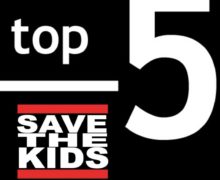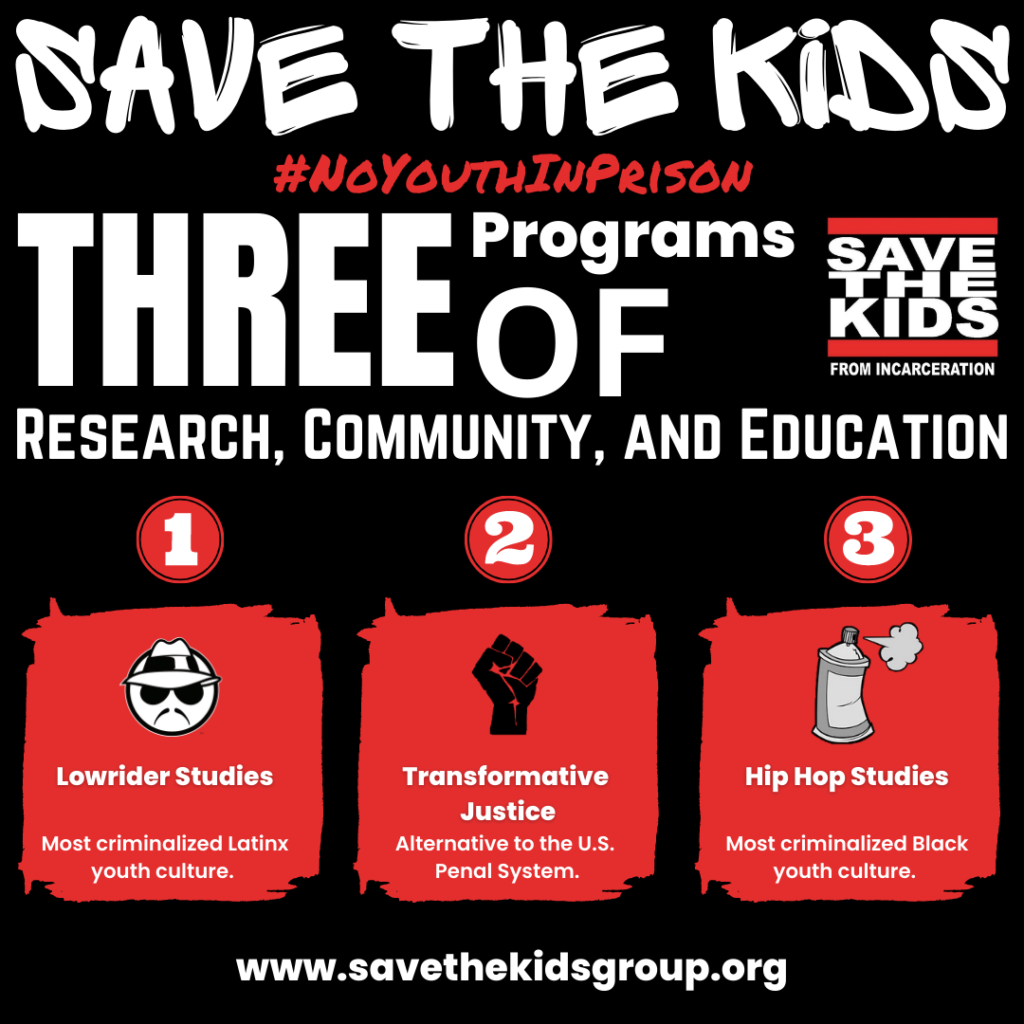Top Five – School-to-Prison-Pipeline Books
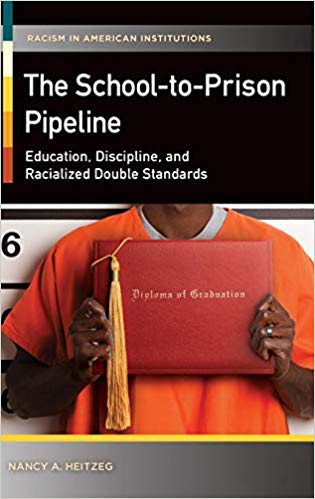
This book offers a research and comparison-driven look at the school-to-prison pipeline, its racial dynamics, the connections to mass incarceration, and our flawed educational climate―and suggests practical remedies for change.
How is racism perpetuated by the education system, particularly via the “school-to-prison pipeline?” How is the school to prison pipeline intrinsically connected to the larger context of the prison industrial complex as well as the extensive and ongoing criminalization of youth of color? This book uniquely describes the system of policies and practices that racialize criminalization by routing youth of color out of school and towards prison via the school-to-prison pipeline while simultaneously medicalizing white youth for comparable behaviors.
This work is the first to consider and link all of the research and data from a sociological perspective, using this information to locate racism in our educational systems; describe the rise of the so-called prison industrial complex; spotlight the concomitant expansion of the “medical-industrial complex” as an alternative for controlling the white and well-off, both adult and juveniles; and explore the significance of media in furthering the white racial frame that typically views people of color as “criminals” as an automatic response. The author also examines the racial dynamics of the school to prison pipeline as documented by rates of suspension, expulsion, and referrals to legal systems and sheds light on the comparative dynamics of the related educational social control of white and middle-class youth in the larger context of society as a whole.
___________________________________________________________________________________________________________________________________________________
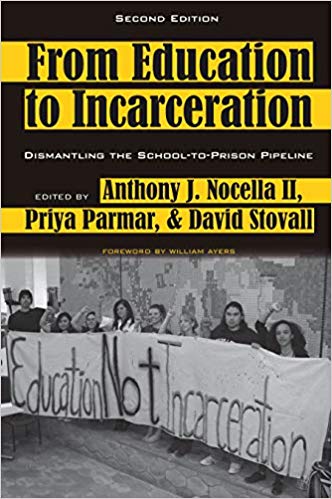
The school-to-prison pipeline is a national concern, from the federal to local governments, and a leading topic in conversations in the field of urban education and juvenile justice. From Education to Incarceration: Dismantling the School-to-Prison Pipeline is a ground-breaking book that exposes the school system’s direct relationship to the juvenile justice system. The book reveals various tenets contributing to unnecessary expulsions, leaving youth vulnerable to the streets and, ultimately, behind bars. From Education to Incarceration is a must-read for parents, teachers, law enforcement, judges, lawyers, administrators, and activists concerned with and involved in the juvenile justice and school system. The contributors are leading scholars in their fields and experts on the school-to-prison pipeline.
___________________________________________________________________________________________________________________________________________________
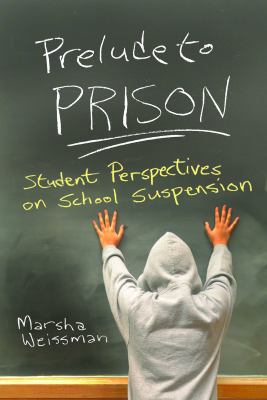
By the close of the twentieth century, the United States became known for its reliance on incarceration as the chief means of social control, particularly in poor communities of color. The carceral state has been extended into the public school system in these communities in what has become known as the “school-to-prison pipeline.” Through interviews with young people suspended from school, Weissman examines the impact of zero tolerance and other harsh disciplinary approaches that have transformed schools into penal-like institutions. In their own words, students describe their lives, the challenges they face, and their efforts to overcome those challenges. Unlike other studies, this book illuminates the students’ perspectives on what happens when the educational system excludes them from regular school.
Weissman draws attention to research findings that suggest punitive disciplinary policies and practices resemble criminal justice strategies of arrest, trial, sentence, and imprisonment. She demonstrates how harsh school discipline prepares young people from poor communities of color for their place in the carceral state. An invaluable resource for policy makers, Prelude to Prison presents recommendations for policy, practice, and political change that have the potential to dismantle the school-to-prison pipeline.
___________________________________________________________________________________________________________________________________________________
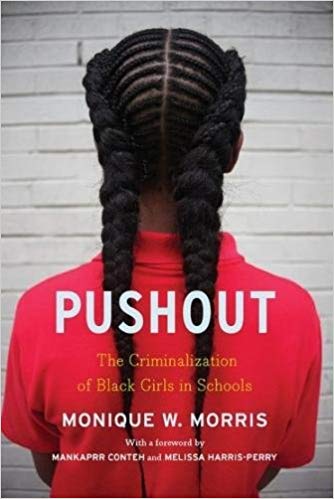
In a work that Lisa Delpit calls “imperative reading,” Monique W. Morris (Black Stats, Too Beautiful for Words) chronicles the experiences of Black girls across the country whose intricate lives are misunderstood, highly judged—by teachers, administrators, and the justice system—and degraded by the very institutions charged with helping them flourish. Called “compelling” and “thought-provoking” by Kirkus Reviews, Pushout exposes a world of confined potential and supports the rising movement to challenge the policies, practices, and cultural illiteracy that push countless students out of school and into unhealthy, unstable, and often unsafe futures.
Called a book “for everyone who cares about children” by the Washington Post, Morris’s illumination of these critical issues is “timely and important” (Booklist) at a moment when Black girls are the fastest growing population in the juvenile justice system. Praised by voices as wide-ranging as Gloria Steinem and Roland Martin, and highlighted for the audiences of Elle and Jet right alongside those of EdWeek and the Leonard Lopate Show, Pushout is a book that “will stay with you long after you turn the final page” (Bookish).
___________________________________________________________________________________________________________________________________________________
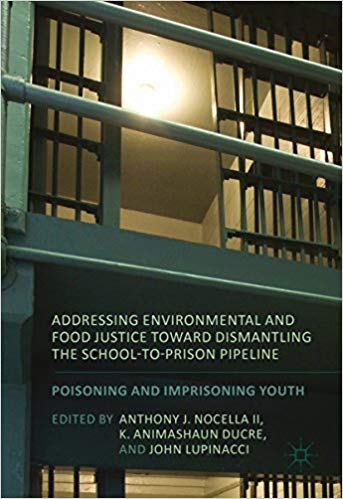
This cutting-edge collection of essays presents to the reader leading voices within food justice, environmental justice, and school to prison pipeline movements. While many schools, community organizers, professors, politicians, unions, teachers, parents, youth, social workers, and youth advocates are focusing on curriculum, discipline policies, policing practices, incarceration demographics, and diversity of staff, the authors of this book argue that even if all those issues are addressed, healthy food and living environment are fundamental to the emancipation of youth. This book is for anyone who wants to truly understand the school to prison pipeline as well as those interested in peace, social justice, environmentalism, racial justice, youth advocacy, transformative justice, food, veganism, and economic justice.


